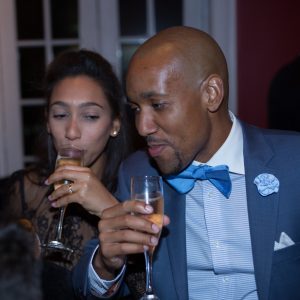TESOL, White Supremacy, Whiteness, and Anti-Blackness
I was asked to write this piece after the recent publication of my article, “Worth the Risk: Towards Decentring Whiteness in English Language Teaching,” which you can find here. In that article, I make the argument that our field of English Language Teaching (ELT), or TESOL, intentionally centers whiteness without naming it, and that this upholds white supremacy in a variety of harmful ways. I make a few concrete suggestions for how our field can improve and I can only hope that that coincidental salience of the article (I wrote it in January, and it just so happened to be published as this uprising began) helps some of my goals become realized in TESOL. I hope, if you haven’t yet, that you take the time to read the article and internalize its arguments as you take steps towards collective action.
Today I want to underline the central thrust of my argument by discussing a few key terms that may help readers better understand the points I am making. Let me start by saying there is nothing inherently wrong with white people as a group. You cannot help by the way the world classifies you racially (that is, the way you are racialized, or not), and skin color itself is not the actual issue, despite pat arguments and misquotations of Dr. King. (Please stop quoting him if you haven’t read his more radical work.) The problem, as it were, is white supremacy, which even those most of us would consider moderate or conservative are unlikely to openly support. We need not spend time debating the immorality of white supremacy, and I am, perhaps unwisely, hopeful that more are finally seeing that it is a systemic issue, supported by policies and practices and not merely individual acts of aggression.
The article, however, does not merely advocate for the “decentring” (it’s a Canadian journal, hence the spelling) of white supremacy, an argument few would disagree with, but the decentering of whiteness. And the point I am making here is that there is no functional difference between whiteness and white supremacy. Race is a construct of power, and whiteness was codified as the most powerful racial group as soon as it was created. My article makes the case that what we promise our students by teaching them English in the way that we do is the additional power of relative proximity to whiteness, but because some students can never truly be seen as white and avoid being racialized, this unattainable goal is harmful.
Ultimately, inherent to whiteness and its construction as superior is not just the racism that follows logically, but specifically anti-Blackness. By silently framing whiteness as a prize (intentionally or not, though truthfully our intent is irrelevant), we contribute to what more of us are finally seeing is a worldwide adherence to the ideology of anti-Blackness, where Black lives, Black bodies, and yes, Black languages, Black language users, and Black language teachers are not given equal weight and love.
As a field, we celebrate our multilingualism and multiculturalism, our supposed diversity and equity, but in this moment, where it is specifically Black lives finally being centered – albeit for the most traumatic of reasons – we are woefully unequipped to address the issue of anti-Blackness, because we are barely able to discuss race and racialization at all. Language, surely, and culture, both of which are tied tightly to race, but take a look at the message the TESOL International Association sent to its members, and count how many times the word “Black” is used.
We can’t fix a problem we can’t name. And we cannot fight anti-Blackness as long as we center and remain invested in whiteness. I wrote my article to argue for institutional change in our field, and I write this piece today to ensure that my call for direct action as a moral imperative is understood and heard. Even if you think you have no power to change our field, start reading racialized authors who question the field’s hegemony, start listening to racialized colleagues, and start challenging the status quo, or anti-Blackness will remain in full control of our work, even as the world shows the smallest signs of being ready to change.

Author’s Biography: JPB Gerald, a 2012 alum of the MATESOL program, is an EdD student at CUNY – Hunter College, focusing, as you can probably tell, on language, race, and whiteness. You can listen to his podcast on the same topics at anchor.fm/Unstandardized, his writing can be found at jpbgerald.com, and his overly active twitter account is @JPBGerald.